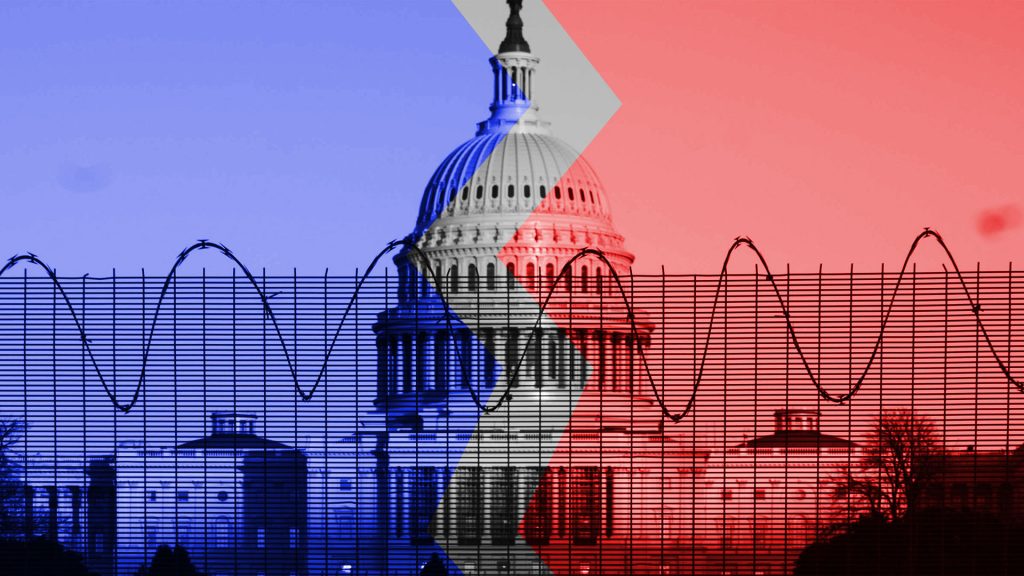Stepping back and observing American culture, it is increasingly the case that emotivist secularist relativism is the ruling ethos of the day. The “Moralistic Therapeutic Deism” (MTD) that sociologists Christian Smith and Melinda Denton observed in the early 2000s has rooted itself (especially) within the hearts and minds of American Millennials (born between 1980 and 2000). But the relative morals of this cohort are swayed by emotional inclinations that are routinely tossed to and fro by the winds and continual flow of social media posts online. In a nation of 330 million that has outsized geopolitical and financial influence in the world, such issues may be a problem in the coming years, as America’s foreign and domestic policies are affected by the disparate moral proclivities of its populace. For any group of people to function as a civil society and community, some agreed-upon moral code or rule of behavior is essential.
Without a set of shared values and ethical guidelines, a community (or culture) becomes unmoored. It loses its sense of unity and purpose, which can lead to division and conflict. Observing life in America over the last two decades is like a case study to this point. Especially since the American political season in 2016, “chaos” has been the norm. And consensus over how to think, reason, and respond to the issues at home and abroad is nearly impossible. We are a nation divided and polarized, with little (if any) agreement on critical issues. And it seems as though this lack of unity and purpose can be traced back to an absence of a shared set of ethics and values. But what can be done when, as alluded to previously, the moral compass of Americans has shifted and moved?
Some argue that such shifts are to be expected within any culture. And in one respect, that is true. Cultures are dynamic. They do move and change over time. But today, when cultural mores are relative and moved by emotional sentiments that are shaped and guided by the constant stream of notifications from Facebook, Instagram, Twitter, and now TikTok, the speed of change is blinding, and the problems are amplified. And that says nothing for the (sometimes malevolent) influencers, both inside and outside of America’s borders, that seek to move Americans (and America) through social media activism. The effects of the new social media technologies remain to be fully realized. But their power to move the emotions and then the people’s moral actions is clear. As proof, one needs to look no further than the “Arab Spring” of 2012, the racial protests and riots following the death of George Floyd in 2020, or Ukraine’s rising defense against the Russian invasion of 2022.
At issue is not a question of social media’s power to move emotions, morals, and actions but whether or not societies (such as ours) can weather the tumult. Can America (specifically) and the West (in general) survive and thrive in such a factious environment? If the morals and values of a people are deeply divided, can they remain a people? At what point are they no longer “a people?” At one time, America was “One nation, under God.” But with “Under God” being (effectively) nullified in recent generations, can America continue to be “one nation?” Is the “one nation” dependent upon the “under God?”
Some of these questions await answers. But one thing is clear, the once United States is (seemingly) much less united. And that does, and will increasingly have a destabilizing impact nationally and internationally in the future. The changes and happenings in the US have made global waves for generations. But the interconnected nature of the globalized twenty-first-century magnifies the problems, which intensifies the need for a strengthened moral foundation.
Now, more than ever, the United States needs a unified and clarion defense of a moral ethic that promotes the common good. A great awakening unto such an ethic is necessary to restore unity and give purpose to our society. Without a shared set of values and ethical guidelines, the division will grow, and we will be unable to effectively address the great challenges we face. As cliche as it may seem, it is up to each one of us to do our part in promoting a moral code that is fair, just, and promotes human thriving and well-being. Only when this is done can we create a more cohesive and functional nation that can meet the challenges of the future and remain a light for the world.

Miles is the senior pastor of Cross Connection Church in North San Diego County, California. He serves as a board member at Enduring Word and Blue Letter Bible.
Miles has a master of divinity degree from Gateway Seminary in California, and is finishing a doctor of educational ministry at Southern Baptist Theological Seminary in Kentucky.
Miles and his wife Andrea have four children, two dogs, three rabbits, a tortoise, a chinchilla, a hamster, a cat, and a crested gecko.





Pastor Miles,
Such a good word. Your summation, “Now, more than ever, the United States needs a unified and clarion defense of a moral ethic that promotes the common good,” caps it.
A hallmark of Truth is that in integrates the many into the one. It unifies because it lops off the false and errant. When we see society fracturing into many different parts, it’s evidence truth has been forsaken and falsehood is ascendant.
Lance
Thanks Lance.
The challenge I see is that we (Christians) must work to become more persuasive in our evangelistic efforts. Not only our sharing of the gospel, but also our defense of why and how Christianity (and the virtues of the Faith) impacts culture and society positively.
There is no Western society without the Christian faith. And there may well be no Western society if it is removed. We are in danger of becoming a “cut flower” culture.
Pastors Miles and Lance,
Miles, my first thought was Daniel’s prayer in Chapter 9.., I think we Christians believe we have no fault in our culture, I know in my life over the past 30 years, there were times I was aloof and disinterested to what was going on around me…Daniel is a great example of humility and repentance to our God for our sins and disobedience!!
I believe we need repent, and get in the frame of mind as the first century believer had…that suffering for Jesus is common as prayer…
Thank you Pastor Miles,
Dave ( Arizona )
I think you are correct, Dave.
Though none of us desire suffering, we should expect that it is likely. And we should be prepared to suffer for the sake of Christ.
Pastor Miles,
When I first believed in Jesus and had that excitement that God forgave my sins..,I didn’t care if people thought I was nuts…now some 36 years later, I still don’t care but now being mature ( well I think I am ) I want the message to be clear to who Jesus is and what He has done for the world,
I’m sure in your flock you care for, is getting them to see that the field are white, ready for harvest.
Lastly North County San Diego, my wife and I moved from Oceanside to Arizona a little over a year ago..
May God bless you as you minister in the strength and faith He provides, may you brave and courageous as you speak his word without wavering !
Dave
Thanks Dave!
That’s a bit of a climate change from Oceanside to AZ.
Yes…
Dry heat lol.., the motto in the summer here is “ go from A/C to A/C “ thanks again for your post and being the watchman that God asked you to be !
God Bless brother,
Dave